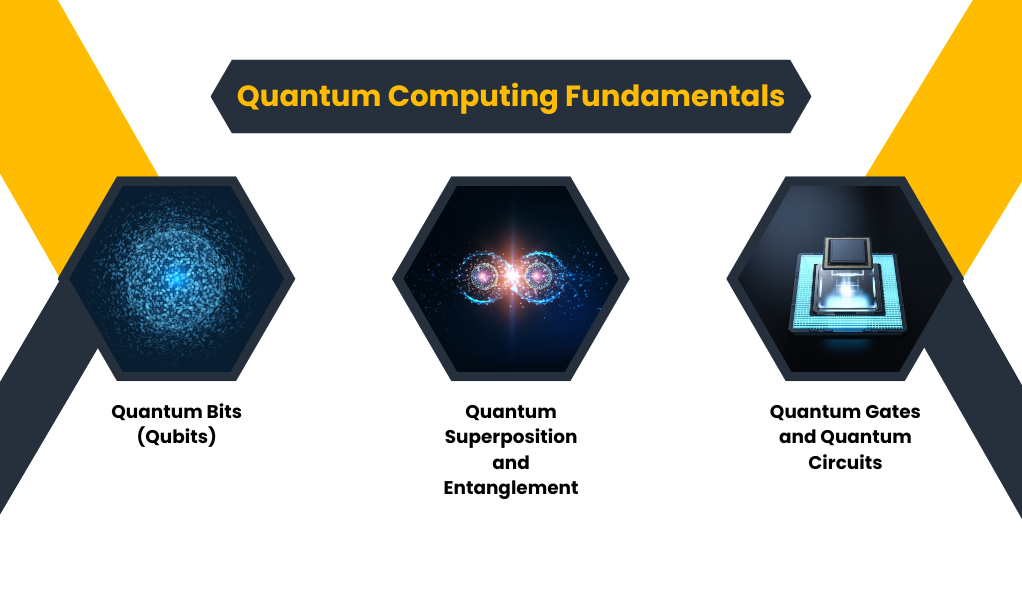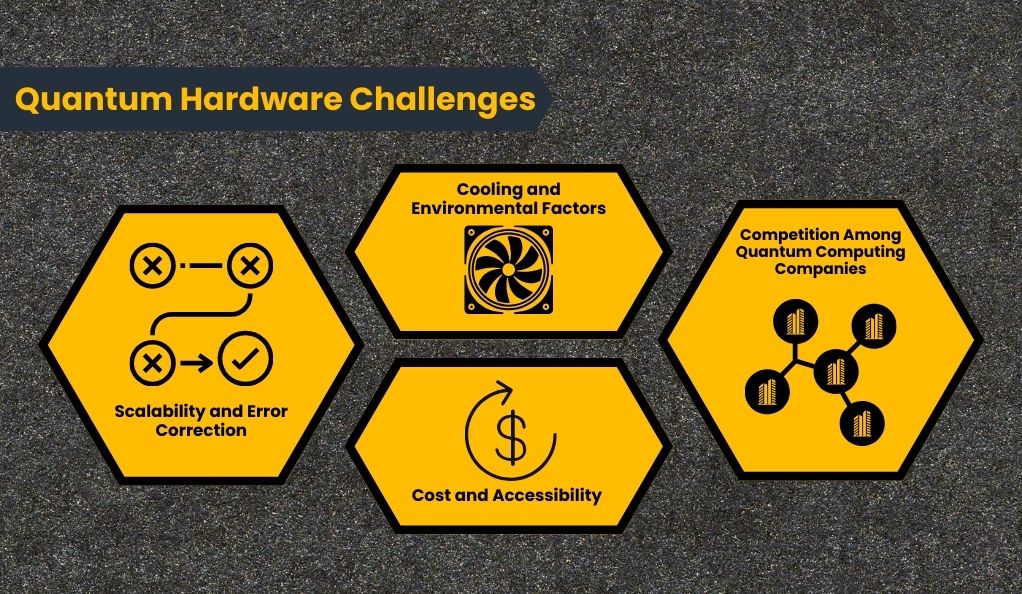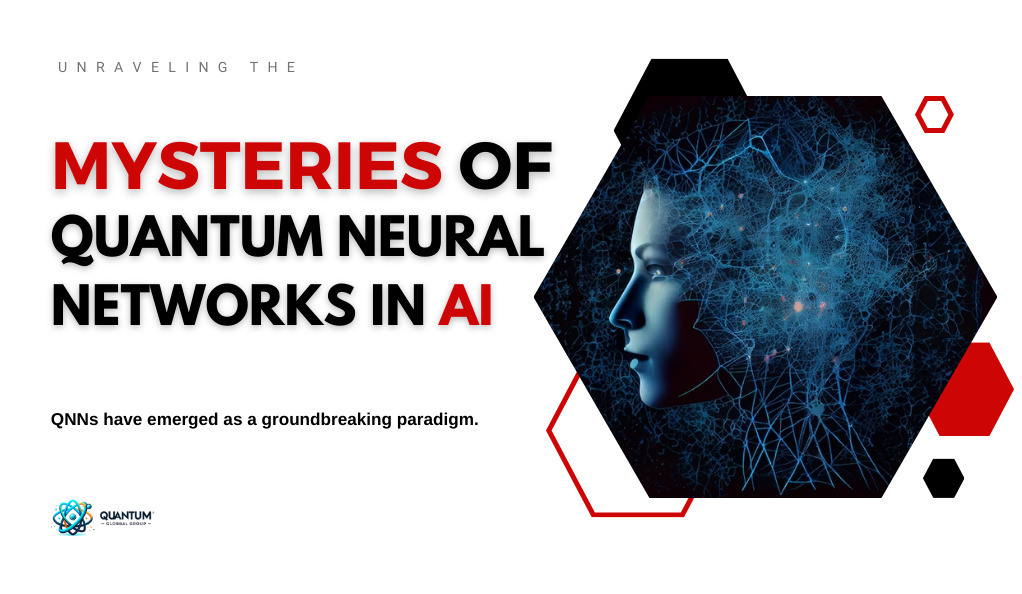In the realm of artificial intelligence (AI), progress knows no bounds. From autonomous vehicles to healthcare diagnostics, AI has been steadily transforming industries, solving complex problems, and reshaping the way we interact with technology. However, as AI algorithms become more sophisticated, so do the computational demands required to fuel their growth. This is where quantum hardware emerges as a game-changing force.
The fusion of quantum hardware and AI has sparked a new era of possibilities, pushing the boundaries of what we thought was achievable in the field of computing. In this article, we embark on a journey into the quantum realm, exploring how quantum hardware is poised to revolutionize artificial intelligence.
The Marriage of Quantum Hardware and AI
At its core, AI revolves around processing and analyzing vast amounts of data to make intelligent decisions. Traditional computing systems, relying on classical bits (0s and 1s), excel at handling these data-driven tasks, but they have their limitations. When faced with exceptionally complex problems, such as simulating molecular structures for drug discovery or optimizing supply chain logistics, classical computers can struggle to provide timely solutions.
This is where quantum hardware enters the scene. Quantum computers harness the principles of quantum mechanics to create quantum bits or qubits. Unlike classical bits, qubits can exist in multiple states simultaneously, thanks to a phenomenon known as superposition. This property enables quantum computers to perform certain types of calculations at an exponentially faster rate than their classical counterparts.
The Promise of Quantum Supremacy
Quantum supremacy is a term that has been buzzing in the tech world, signifying the moment when quantum computers outperform the most advanced classical computers in specific tasks. While it’s essential to note that quantum supremacy doesn’t imply superiority across all computing domains, it does showcase the extraordinary potential of quantum hardware in AI applications.
In October 2019, Google claimed to have achieved quantum supremacy by demonstrating a quantum computer’s ability to perform a specialized calculation significantly faster than the most advanced classical supercomputers. This achievement sent ripples through the scientific community, signaling the dawn of a new computing era.
The Need for Quantum Solutions in AI
As AI applications continue to grow in complexity, classical computing resources face substantial challenges. Tasks like optimizing large-scale neural networks, simulating quantum systems, or cracking advanced encryption require computational capabilities that classical computers may not achieve in a reasonable time frame.
The demand for quantum solutions in AI is further underscored by the pursuit of quantum machine learning (QML). QML leverages quantum algorithms to enhance AI models, enabling them to process and understand data more efficiently. This fusion of quantum and classical AI techniques opens doors to faster training, improved pattern recognition, and enhanced decision-making.
Quantum Computing Fundamentals

To comprehend the profound impact of quantum hardware on artificial intelligence, we must first grasp the fundamental principles that underpin quantum computing.
1. Understanding Quantum Bits (Qubits)
At the heart of quantum computing are qubits, the quantum counterpart to classical bits. Unlike classical bits, which can be either 0 or 1, qubits can exist in multiple states simultaneously, a phenomenon known as superposition. This property allows quantum computers to perform parallel calculations, vastly increasing their computational power.
2. Quantum Superposition and Entanglement
Superposition is not the only remarkable feature of qubits. They can also become entangled, a phenomenon where the state of one qubit becomes dependent on the state of another, regardless of the physical distance between them. Entanglement enables quantum computers to perform highly correlated operations, making them well-suited for solving problems involving interconnected data.
3. Quantum Gates and Quantum Circuits
Quantum operations are carried out using quantum gates, which manipulate the state of qubits. These gates, analogous to classical logic gates, enable the creation of quantum circuits.
Quantum Algorithms for AI
Quantum computing’s true potential comes to light when we explore the quantum algorithms specifically designed to enhance artificial intelligence tasks.
- Grover’s Algorithm: Speeding Up Search
Grover’s algorithm, a quantum search algorithm, stands out as a prime example of how quantum hardware can revolutionize AI. It offers a quadratic speedup over classical algorithms in unstructured search tasks, making it invaluable for AI applications that require sifting through massive datasets efficiently.
- Shor’s Algorithm: Breaking Down Encryption
In the realm of cybersecurity and cryptography, Shor’s algorithm reigns supreme. It can factor large numbers exponentially faster than the best-known classical algorithms. This breakthrough threatens the security of classical encryption methods, highlighting both the promise and potential challenges of quantum computing.
- Quantum Machine Learning (QML) Algorithms
Quantum machine learning algorithms, such as quantum support vector machines and quantum neural networks, bridge the gap between quantum computing and AI. They harness the power of quantum hardware to enhance machine learning models, opening up new possibilities for data classification, pattern recognition, and predictive modeling.
- Quantum Annealing: Solving Optimization Problems
Quantum annealing is a specialized quantum computing technique tailored for solving optimization problems. It finds applications in various AI domains, from portfolio optimization in finance to resource allocation in logistics. Quantum annealers can explore vast solution spaces more efficiently than classical counterparts, providing significant advantages in decision-making scenarios.
Real-World Applications
The synergy between quantum hardware and artificial intelligence isn’t confined to theoretical concepts and algorithms; it extends its reach into the practical world, offering innovative solutions to some of the most pressing challenges in various industries.
Drug Discovery and Healthcare
One of the most promising applications of quantum hardware in AI lies in drug discovery and healthcare. Simulating the behavior of molecules and proteins is a computationally intensive task crucial for understanding diseases and designing new drugs. Quantum computers have the potential to dramatically accelerate these simulations, potentially revolutionizing pharmaceutical research and personalized medicine.
Financial Modeling and Portfolio Optimization
In the financial sector, where rapid data analysis and decision-making are paramount, quantum computing holds tremendous promise. Quantum algorithms can provide real-time risk assessment, portfolio optimization, and fraud detection. This can enable financial institutions to make data-driven decisions with unparalleled speed and accuracy.
Traffic Optimization and Logistics
Traffic congestion and logistics management are perennial urban challenges. Quantum computing can optimize traffic flow, reduce congestion, and streamline supply chain operations. By analyzing vast datasets and considering multiple variables simultaneously, quantum-powered AI solutions have the potential to alleviate some of the most vexing transportation and logistics problems.
Climate Modeling and Environmental Research
Quantum computing can play a pivotal role in tackling climate change and environmental challenges. It can enhance climate models, allowing scientists to simulate and analyze complex environmental systems more accurately. This, in turn, aids in developing strategies to mitigate climate change, predict natural disasters, and protect ecosystems.
AI-Assisted Materials Science
Materials science research often involves exploring a vast array of materials and their properties. Quantum hardware can accelerate this process by simulating material behavior at the quantum level. This can lead to the discovery of new materials with extraordinary properties, revolutionizing industries such as electronics, energy storage, and manufacturing.
The real-world applications of quantum hardware in conjunction with AI are wide-ranging and hold the potential to reshape entire industries. As these quantum-accelerated solutions become more accessible, we can anticipate significant advancements in healthcare, finance, transportation, environmental science, and materials engineering.
Quantum Hardware Challenges

While the potential of quantum hardware in advancing artificial intelligence is undeniably exciting, it is essential to acknowledge and address the significant challenges that accompany this quantum revolution.
Scalability and Error Correction
Quantum computers are still in their infancy, and building large-scale, fault-tolerant quantum systems remains a formidable challenge. Quantum bits are highly susceptible to errors caused by factors like environmental noise and imperfect control mechanisms. Developing robust error correction codes and scalable architectures is a critical step towards making quantum hardware reliable for practical AI applications.
Cooling and Environmental Factors
Quantum computers operate at extremely low temperatures, close to absolute zero. Maintaining these frigid conditions presents a logistical challenge, as it requires specialized equipment and infrastructure. Ensuring the stable operation of quantum hardware in real-world environments is a hurdle that must be overcome to make quantum AI accessible and practical.
Cost and Accessibility
Quantum hardware is currently expensive to build and maintain. Access to quantum computing resources remains limited to a select few organizations and research institutions. Widespread adoption of quantum technology in AI will depend on making quantum computing more affordable and accessible to a broader range of users.
Competition Among Quantum Computing Companies
The race for quantum supremacy has led to a surge in competition among tech giants and startups. Companies like IBM, Google, Microsoft, and startups like Rigetti are vying to lead the quantum computing race. While this competition fuels innovation, it also creates a fragmented landscape with different quantum hardware platforms and programming languages, posing integration challenges for AI developers.
In the face of these challenges, the quantum hardware community is actively working to overcome barriers and pave the way for quantum-accelerated AI. Researchers and engineers are developing novel error correction techniques, optimizing quantum algorithms for noisy intermediate-scale quantum (NISQ) devices, and exploring innovative cooling solutions.
Quantum AI in Practice
The marriage of quantum hardware and artificial intelligence is no longer confined to the realm of theory; it is rapidly transitioning into practical applications across research and industry.
Leading Quantum Hardware Companies
Several prominent companies are at the forefront of developing quantum hardware and software tailored for AI applications. These companies are driving innovation and fostering the integration of quantum solutions into AI workflows. Some notable players include IBM, which offers cloud-based access to quantum computers, Google with its Quantum AI lab, and startups like IonQ, which specializes in building quantum processors with a focus on scalability and error correction.
Collaborations and Research Initiatives
The advancement of quantum-enhanced AI relies on collaborative efforts between academia, industry, and research institutions. Partnerships between quantum hardware companies and AI researchers are yielding groundbreaking results. Organizations are pooling their expertise to develop quantum algorithms, explore real-world applications, and address the challenges associated with quantum hardware.
Quantum AI in Commercial and Academic Settings
Quantum-enhanced AI is not confined to research laboratories. It is making its way into commercial applications and academic research projects. Industries such as finance, pharmaceuticals, and logistics are leveraging quantum hardware to gain a competitive edge. Academic institutions are incorporating quantum computing and quantum machine learning into their curricula, ensuring a pipeline of talent ready to harness the power of quantum AI.
Quantum AI is rapidly evolving from a theoretical concept to a practical tool with the potential to disrupt a wide range of industries. As quantum hardware becomes more accessible, we can expect to see a proliferation of quantum-accelerated AI solutions, offering faster, more accurate, and innovative ways to solve complex problems.
The Future of Quantum Hardware and AI
The trajectory of quantum hardware’s evolution is nothing short of exhilarating, and its impact on the field of artificial intelligence is set to intensify in the coming years.
Quantum AI Roadmap
The roadmap for quantum hardware in AI is characterized by rapid advancements. Researchers are tirelessly working to develop more powerful quantum processors, enhance error correction techniques, and create algorithms that leverage the unique capabilities of quantum hardware. As quantum computers become more scalable and accessible, they will unlock new possibilities for AI applications.
Quantum AI Ethics and Security

The integration of quantum hardware into AI raises ethical and security concerns that demand careful consideration. Quantum computing’s potential to break existing encryption methods poses security challenges that must be addressed through the development of quantum-safe encryption techniques. Additionally, as quantum AI becomes more prevalent in decision-making processes, ethical concerns regarding fairness, accountability, and transparency will need to be addressed to ensure responsible AI development.
Quantum Hardware and Quantum AI Synergy
The synergy between quantum hardware and AI is a driving force for innovation. Quantum-enhanced AI can transform industries, accelerate scientific discoveries, and revolutionize how we approach complex problems. As quantum hardware matures, we can expect to see increasingly sophisticated AI algorithms designed to harness the full potential of quantum computing, paving the way for groundbreaking solutions in fields as diverse as healthcare, finance, and materials science.
Conclusion
In conclusion, the fusion of quantum hardware and artificial intelligence signifies a momentous leap in the world of computing. Quantum computers, with their qubits, superposition, and entanglement, bring unparalleled processing power to AI, enabling us to tackle previously insurmountable challenges. Quantum algorithms and real-world applications are already demonstrating the transformative potential of this partnership across diverse industries.
However, we must confront formidable challenges such as scalability, error correction, cost, and accessibility. Collaboration, standardization, and ethical considerations are vital as we navigate the path to harnessing quantum hardware’s full potential. The roadmap ahead promises further innovation and opportunities, shaping a future where quantum and AI seamlessly converge to redefine what’s achievable in artificial intelligence. In this ever-evolving landscape, proactive engagement with quantum technology is the key to unlocking new horizons and pushing the boundaries of computational possibility.




